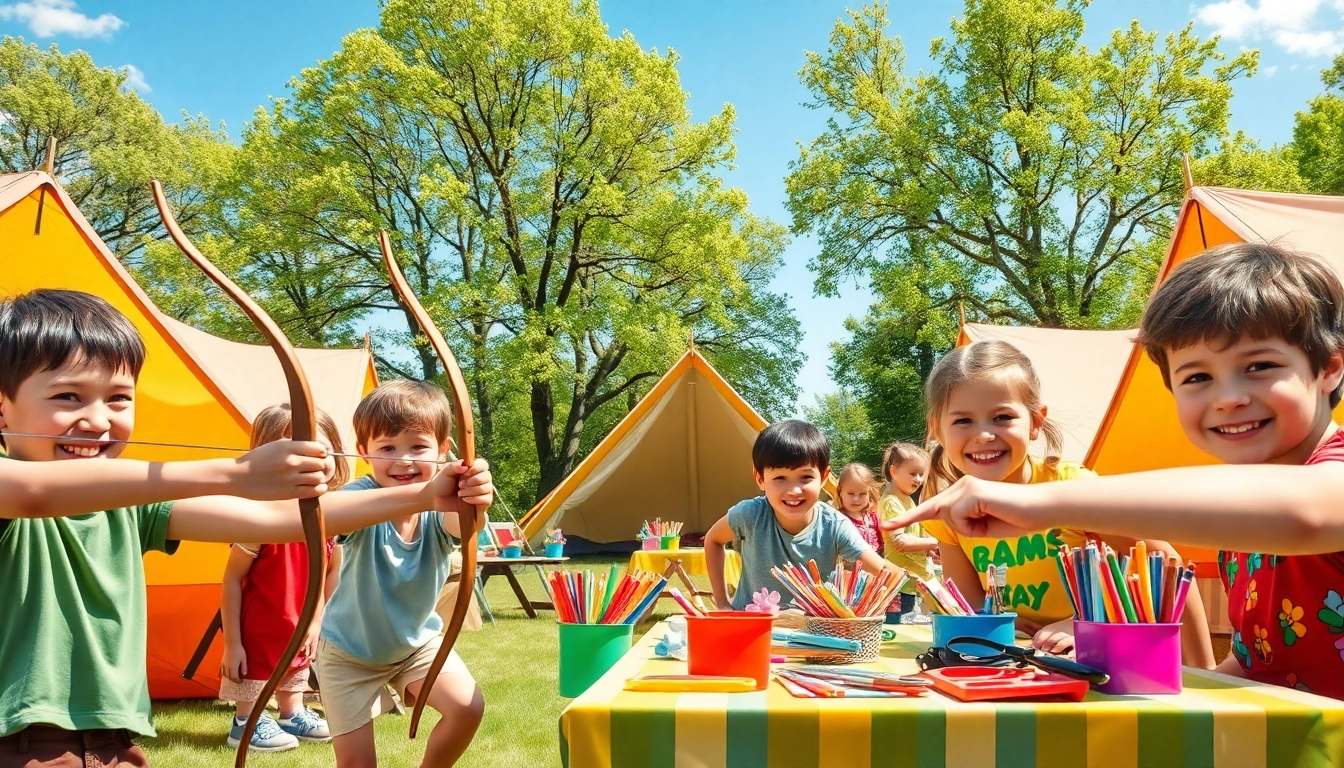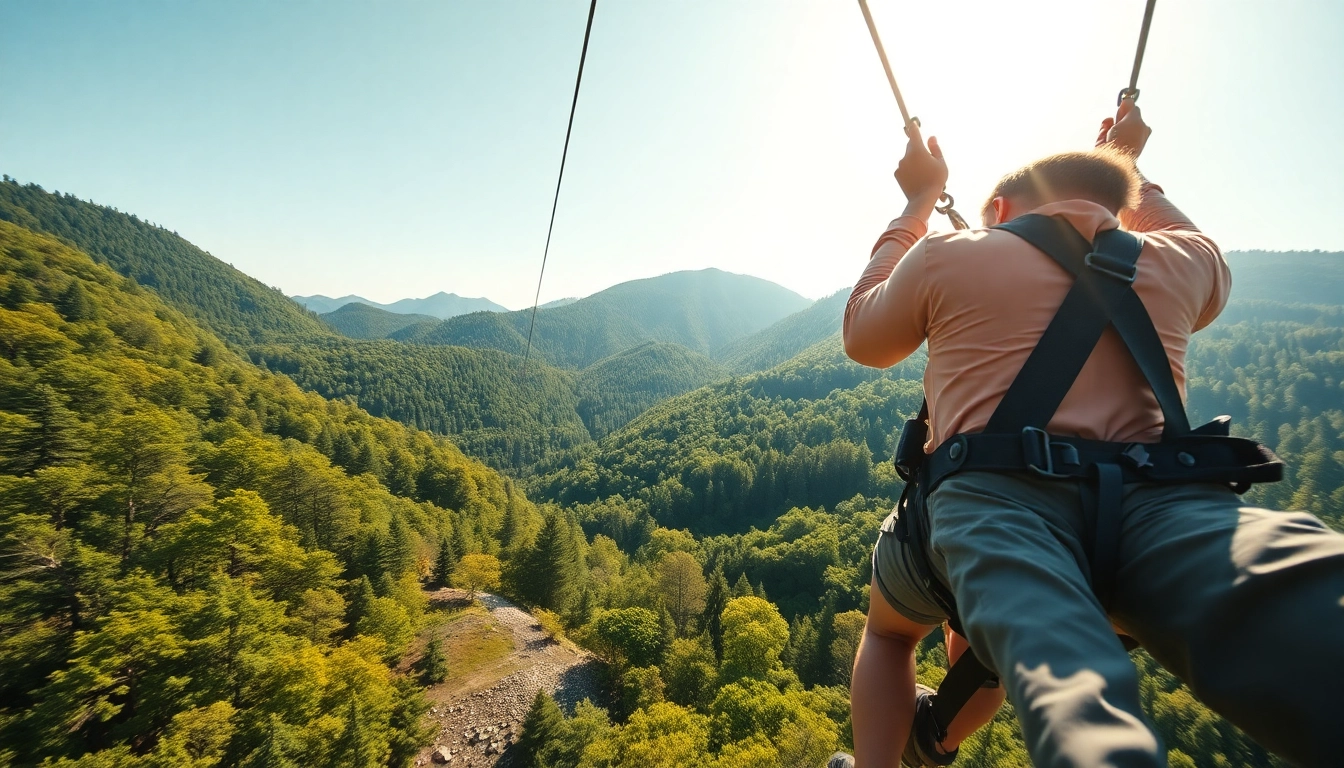The Joy of Holiday Camps: An Overview
Holiday camps offer a unique opportunity for families and children to disconnect from their daily routines and immerse themselves in a world of fun, learning, and adventure. Whether you’re looking for a place for your child to explore their interests, meet new friends, or gain new skills, holiday camps serve as a vibrant solution. A well-organized holiday camp provides a structured program of activities while fostering creativity and personal development among campers. For those seeking memorable experiences, engaging activities, and a sense of community, holiday camps can be a perfect choice. In this article, we will explore holiday camps in detail, their benefits, types, and key considerations for parents looking to get their children involved.
What Are Holiday Camps?
Holiday camps are organized programs designed for children and teens during school breaks or holidays. These camps can vary widely in terms of focus, length, and activities, with options available for various age groups and interests. Some may be focused on specific themes like sports, arts, or nature, while others might offer a broader range of activities designed to engage campers fully. Weekend and school holiday camps are often residential, providing meals and accommodations to campers, while day camps allow children to return home each evening.
Benefits of Attending Holiday Camps
Holiday camps present numerous benefits, making them a sought-after option for families seeking development opportunities for their children. Some of the key advantages include:
- Social Skills Development: Campers meet and interact with peers from different backgrounds, enhancing their communication and teamwork abilities.
- Skill Development: Camps often focus on specific skill sets, enabling campers to learn new hobbies and interests, from sports to arts and crafts.
- Independence: Being away from home helps children develop a sense of independence and self-reliance, valuable life skills as they grow older.
- Outdoor Engagement: Many camps emphasize outdoor activities, encouraging a love for nature and promoting physical activity, which is essential for children’s health.
- Structured Environment: Camps provide a well-thought-out structure, ensuring that children are engaged in productive activities throughout their time away.
Types of Holiday Camps Available
Holiday camps come in various formats and types, catering to a wide range of interests. It’s essential for parents to understand these different options to find the best fit for their children:
- Traditional Camps: These typically offer a broad range of activities such as swimming, crafts, and sports, emphasizing personal growth and social interaction.
- Specialty Camps: Often focused on a specific interest like soccer, music, or science, these camps allow children to delve deeper into a subject they are passionate about.
- Arts and Crafts Camps: Targeted at fostering creativity, children can explore various forms of art, from painting to sculpture.
- Nature Camps: These camps are often located in natural settings, where children can learn about the outdoors, participate in hiking, and engage in environmental stewardship activities.
- Sports Camps: Focused on athletic skills development, these camps allow children to enhance their abilities in specific sports, often led by experienced coaches.
- Academic Camps: These camps offer subjects like coding, mathematics, and science, focusing on reinforcing or advancing learning in a fun way.
Choosing the Right Holiday Camp
Factors to Consider
Selecting the right holiday camp can significantly affect your child’s experience. Here are some key factors to keep in mind when making a decision:
- Interest Alignment: Ensure the camp’s activities align with your child’s interests. This will enhance their enjoyment and engagement throughout the camp.
- Age Appropriateness: Each camp caters to specific age groups. It’s vital to choose a camp that is suitable for your child’s age and developmental stage.
- Location: Proximity can influence choice, especially regarding travel time and accessibility for drop-offs and pickups.
- Staff Qualifications: Investigate the qualifications and experience of the camp staff to ensure positive supervision and engagement.
- Safety Protocols: Camps should have clear safety protocols and emergency procedures in place. Safety is paramount, particularly for younger campers.
- Cost and Value: Assess the camp fees, what they cover, and if there are any available discounts or scholarships.
Top Holiday Camps by Region
When looking for the best holiday camps, it helps to know what’s available in your region. Here are some of the notable holiday camps across different areas:
United Kingdom
- Butlins: Known for its entertainment and extensive facilities, Butlins holiday camps provide a variety of activities for families and kids alike.
- Pontins: Offers a diverse program of sporting and artistic activities in a vibrant environment.
- Haven Holidays: Famous for its stunning caravan sites along the UK coast, Haven provides many family-centered activities.
United States
- YMCA Camps: With locations across the country, YMCA offers a range of camps that focus on nurturing, recreation, and personal development.
- Girl Scouts and Boy Scouts Camps: Programs designed to encourage outdoor skills, leadership, and teamwork among children.
Client Testimonials and Experiences
Reading about the experiences of other parents and children can provide valuable insights. Here are several testimonials highlighting the impact of holiday camps:
“My daughter attended a two-week sports camp and came back with new friends and incredible skills. She loved every minute!” – Sarah G.
“We chose a nature camp, and my son couldn’t stop talking about all the wildlife he saw and the friendships he built.” – Mark R.
“The staff at the arts camp were phenomenal. They truly foster creativity and helped my son build confidence.” – Laura T.
Booking Your Holiday Camp Experience
How to Secure Your Spot
Once you’ve selected a holiday camp, it’s essential to act quickly to secure your child’s place. Here are the steps to follow:
- Research: Gather information about the camp, including its schedule, fees, and what to expect.
- Contact the Camp: Reach out to the camp for any specific questions or clarifications needed.
- Complete Registration: Fill out the registration forms and ensure all necessary information is provided.
- Payment: Make the required payments ahead of time to guarantee your child’s enrollment.
- Prepare for Camp: Discuss the upcoming camp experience with your child, packing helpful items and addressing any concerns.
Important Dates and Schedules
Each holiday camp has specific schedules regarding start and end dates, and it’s imperative to stay informed:
- Session Length: Camps may offer varying lengths—some may last a few days, while others extend over several weeks.
- Drop-off and Pick-up Times: Familiarize yourself with the camp’s drop-off and pick-up protocols to ensure a smooth experience.
- Registration Deadlines: Camps often have a set deadline for registration; missing it can result in lost opportunities for your child.
Understanding Camp Fees and Discounts
Awareness of the financial aspect is crucial, as camp fees can vary significantly based on numerous factors:
- Tuition Costs: Review what the tuition covers—are meals, activities, and accommodations included?
- Discounts: Many camps offer early bird registration discounts or sibling discounts, so inquire about available savings.
- Financial Aid: If costs are a concern, check if the camp provides financial aid opportunities to assist families in need.
Activities and Programs at Holiday Camps
Traditional Camp Activities
Traditional camps often feature a mix of engaging activities that keep campers entertained and active:
- Arts and Crafts: Encourages creativity through various mediums.
- Sports Activities: Competitive and recreational games that enhance physical development.
- Nature Walks: Help campers connect with nature and learn about the environment.
- Campfire Storytelling: Instills a sense of community through shared experiences.
Seasonal and Themed Programs
Many holiday camps adopt seasonal themes or programs designed to align with holidays or specific interests:
- Summer Camps: Focus on fun summer activities like swimming, hiking, and sports.
- Winter Camps: Include activities like skiing and snowboarding, especially in colder regions.
- Holiday Themed Camps: During Christmas, Halloween, or Thanksgiving, camps might feature themed activities aligned with the holiday spirit.
Safety and Supervision Practices
Ensuring that children are safe while at camp is paramount. Here are common practices followed by reputable camps:
- Staff Training: Staff members are often trained in first aid, CPR, and crisis management to handle emergencies effectively.
- Child-to-Staff Ratios: A healthy ratio is maintained to ensure proper supervision and individualized attention for each child.
- Emergency Protocols: Camps develop and communicate clear emergency protocols for various situations, from severe weather to health issues.
Beyond the Campsite: Connecting with Nature
The Importance of Outdoor Learning
Outdoor learning is an integral part of many holiday camps, offering several advantages beyond traditional classroom settings:
- Cognitive Development: Exposure to natural environments stimulates curiosity, enhancing learning capabilities.
- Physical Health: Engaging in outdoor activities promotes physical wellness and combats childhood obesity.
- Mental Wellness: Nature interaction reduces stress and anxiety levels, fostering overall well-being.
Community Engagement and Partnerships
Successful camps often engage with local communities, creating partnerships that enrich the experience:
- Local Organizations: Collaboration with local organizations can provide activities, guest speakers, and material resources.
- Volunteering Opportunities: Some camps offer community service programs that teach children the importance of giving back.
- Parent Involvement: Camps might encourage parents to participate, whether through volunteering or attending special events, enhancing the community spirit.
What to Expect After Camp Ends
The end of a camp usually comes with a bittersweet feeling, but it doesn’t have to be the end of the experience:
- Post-Camp Reflection: Encourage your child to reflect on their experiences, reinforcing the skills and lessons learned at camp.
- Continuing Friendships: Help your child maintain the friendships they formed, whether through meet-ups or online communication.
- Skill Application: Encourage them to apply what they’ve learned at camp in their home or school settings, promoting ongoing development.



